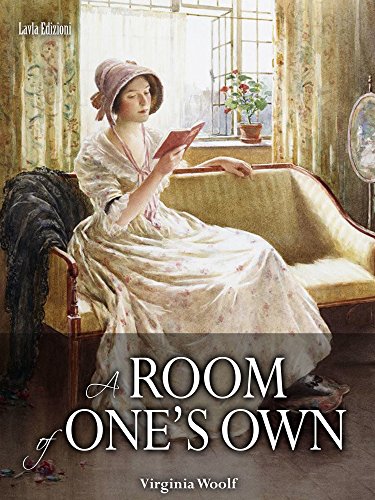
In this 1929 book, Virginia Woolf writes about the misogyny and gender inequality of her time and unlike some other historic feminist texts which seem somewhat outdated when you look back on them in the modern day, A Room of One’s Own has aged wonderfully. It’s something that modern feminists should definitely try (and everyone else too).
Throughout the book, she not only looks at present (for her time) and historic injustices against women, but she also gives her perspectives on the history of literature written by women – an angle which I, as an avid reader, found particularly interesting.
She addresses the fact that women’s perspectives are much rarer when looking at historic pieces of literature, because the majority of women throughout history were not given the opportunity to learn how to read or write. Meanwhile, those who did may have had such a sheltered life, that they wouldn’t have known as much about anything to be able to write a book.
She gives the hypothetical example of Judith Shakespeare, a sister to William Shakespeare born with all of the same literary capabilities as the historic Shakespeare. In some detail, she describes that tragic life that this woman might have lived – involving physical abuse, pressure to be married, nobody taking her writing seriously, and ultimately a miserable death by her own hand. It’s bleak, but very thought-provoking.
The ultimate point of the book is to highlight that a woman needs “a room of one’s own” in order to be able to succeed as a writer, because if a woman does have her own safe space, not only does it mean that she can write confidently and comfortably without fear of her writing being censored or belittled by the men in her life, but also because it suggests some level of financial security – because living in poverty would significantly reduce the likelihood that anybody would be able to produce a novel.
I also particularly enjoyed the portion of the novel in which she writes about the difficulty gay women faced in being able to write about their experiences – primarily because of the laws surrounding so-called ‘obscenity’ in writing at the time. It’s refreshingly progressive to read a perspective like this in something from the 1920s.
All in all, it was a fascinating and enjoyable read. Not only did I feel like I learned quite a bit from this book, but it was also really interesting to get Woolf’s perspectives on the subject and she often articulates her point in comedic or creative ways. If you’ve enjoyed other books by Virginia Woolf, or you’re interested in literary history, or feminism in general, you should definitely read this book.
Rating: 9.3/10
